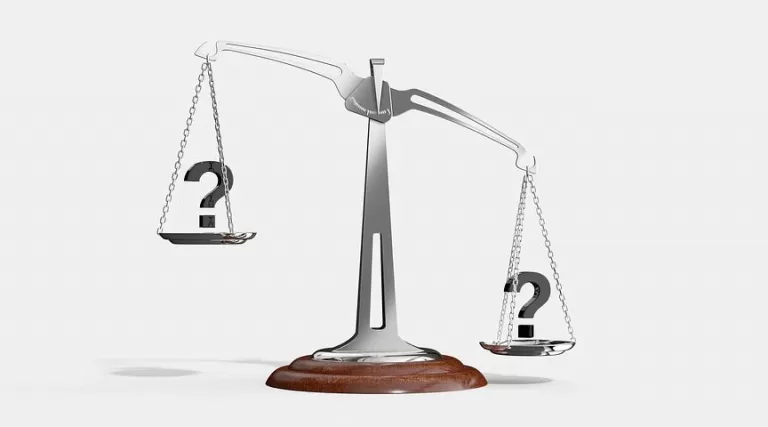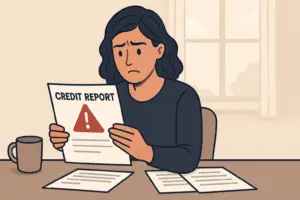(And Other Possible Consumer Fraud Remedies)
Congress has enacted various laws to protect US consumers from personal financial harm. These laws require banks, creditors, and credit reporting agencies to take specific steps when consumer fraud occurs. If creditors don’t follow the law, consumers may be entitled to certain remedies or financial damages including “actual damages.” But what are actual damages? And what other remedies can consumers request under these laws?
To understand your rights as a consumer and what you may receive if a creditor, bank, or credit agency violates the law, let’s review the monetary damages you can request under the major consumer protection acts. But be advised, these laws are complicated, and few consumers recover damages unless they work with a consumer fraud lawyer to protect their rights.
A Brief Overview of the Top US Consumer Protection Acts
Since we are focusing on potential remedies in this article, we must start with a basic explanation of the most common consumer-related acts that might apply in a consumer fraud situation. For more detailed information about each act listed here, be sure to read, “A Consumer Protection Law Outline: 5 Federal Consumer Protection Statutes You Should Know.”
Depending on the circumstances of the consumer dispute, the companies involved, and the nature of the problem, one or more of these acts may apply:
- The Fair Credit Reporting Act (FCRA): This act deals with errors in consumer credit reports. Typical cases involve the consumer, the credit reporting agency, and the creditor that supplied information to the reporting agency.
- The Fair Credit Billing Act (FCBA): The situations covered in this act involve consumers who have disputed unauthorized charges or incorrect amounts found on their credit card statements.
- Truth in Lending Act (TILA): Creditors and lenders are required to disclose certain information related to a loan or credit extension (such as the amount of the finance charge and amount financed, the annual percentage rate, or “APR,” etc.) before a consumer borrows money.
- Electronic Fund Transfer Act (EFTA): This act protects consumers with accounts at banks and other financial institutions, limiting their potential losses from unauthorized electronic transfers such as debit card theft, fraud involving ACH transfers, and more.
- Fair Debt Collection Practices Act (FDCPA): When debt collection agencies pursue consumers for money owed, this act specifies the actions they can and cannot take. Generally, the debt collector cannot act in an unfair, deceptive, or abusive manner when attempting to collect a debt. For example, the debt collector may not misrepresent the amount owed or the consumer’s rights and the collector is subject to a wide variety of limitations in terms of how and when they can collect debts. Because debt collection often involves form letters sent to large groups of people, many unfair debt collection practice claims can be pursued as a class action.
While each act addresses different situations and different potential parties, they all allow a consumer to recover actual damages if they can prove a violation. Each act also provides for “statutory damages,” attorney’s fees, and costs to the prevailing consumer.
What are Actual Damages and what Other Remedies Can Consumers Receive?
Each of the above acts sets forth certain remedies, or monetary damages, that consumers may request when they prove a violation has occurred. But what are monetary damages, and which are allowed under these consumer protection laws?
If you can prove your case, your potential remedies vary from act to act. Some situations may justify punitive or treble damages, but all violations allow for actual damages and statutory damages.
So, what are actual damages and other allowable remedies under these laws?
Here’s a quick guide to the various types of remedies available in consumer fraud cases:
- Actual Damages: Also known as Compensatory Damages, this is the money awarded to a consumer to pay for actual losses caused by someone’s unlawful conduct. In consumer fraud matters, your actual damages may be the return of funds taken from your account, a refund of any improper interest charged, a wage garnishment refund, and other quantifiable losses related to the violation. Actual damages can also include compensation for a wide variety of other harm, including damage to your credit, lost wages, and emotional distress. Actual damages usually have no dollar limit if they can be proved and causally related to unlawful acts.
- Statutory Damages: Each of the federal laws listed above (the FCRA, FCBA, EFTA, TILA, and the FDCPA) establish a specific dollar amount a consumer can request in addition to actual damages. For example, under the EFTA, a successful consumer may receive between $100 and $1,000 as statutory damages, in addition to any actual damages recovered. The FCRA also allows statutory damages of between $100 and $1,000, but only to those consumers who show that non-compliance was willful. The FDCPA allows statutory damages of up to $1,000 for successful consumers. The TILA caps statutory damages at 2,000, 4,000, or $5,000 depending on what type of loan is involved.
- Punitive Damages: If the consumer can prove the other party acted willfully or maliciously in violation of the law, some consumer protection laws allow for punitive damages. These remedies are intended to punish violators and stop them from violating the law in the future. The FCRA, EFTA, and FCBA allow for punitive damages under certain circumstances.
- Treble Damages: Some consumer laws allow the court to award treble damages in certain situations. Treble damages are a form of punitive damages that are calculated by multiplying the consumer’s actual damages by three. This remedy must be specifically mentioned in the act, for example, the EFTA allows treble damages in some situations.
- Attorney’s Fees: Consumer protection laws are not effective if the cost to enforce them is too expensive for an average consumer. To level the playing field and ensure consumers can bring important legal action to protect their rights, each of the consumer protection laws discussed above requires that the creditor, credit reporting agency, debt collector, or other business that violated the law pay the consumer’s attorney’s fees and costs.
- Class Action Damages: Each of the statutes cited above specifically discuss class actions. Although the language varies slightly from one federal consumer law to the next, consumers in class action cases can request actual damages in whatever amount incurred, plus statutory damages capped at a specific level. For example, the FDCPA allows consumers who bring a class action to request their actual damages AND each named plaintiff can request statutory damages up to $1,000, AND the court may award, “such amount as the court may allow for all other class members, without regard to a minimum individual recovery, not to exceed the lesser of $500,000 or 1 per centum of the net worth of the debt collector.”
Proving a federal case against a creditor or credit reporting agency is complicated and requires extensive legal experience. The language of the laws, the relevant implementing regulations, the regulator’s official commentary, the body of case law interpreting the statute, and all regulations are important and situation-specific. If you are facing a creditor that has violated the law, consider consulting with a consumer fraud attorney as soon as possible to understand which remedies are available in your situation.
Trust a Dedicated Consumer Fraud Lawyer at Schlanger Law Group to Explain Actual Damages Available and Help You Recover the Remedies You Deserve
At Schlanger Law Group, we dedicate our practice to consumer protection law. We are here to guide you through the complicated maze of consumer laws, and we aren’t afraid to take on big corporations that harm innocent consumers.
Give us a call at (212) 500-6114 or fill out this simple online form to schedule a free, no-obligation consultation today. Don’t wait another day, your financial future is too important.







